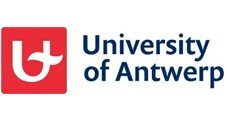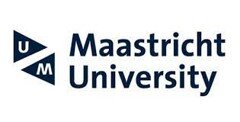
The University of Antwerp is a young, dynamic and forward-thinking university (>20.000 students and >5000 staff). INSPIRE will rely on the expertise of the Physiopharmacology (PhysPharm) and the Cardiovasuclar Diseases (Cardiovasc) research groups. Prof. G. De Meyer is spokesperson of PhysPharm that consists of approximately 30 scientists who investigate CV pathophysiologies such as arterial stiffness, atherosclerosis and heart failure (HF). Cardiovasc is headed by prof. H. Heidbuchel and has around 15 scientist involved in translational research on HF (both HFrEF and HFpEF) and possible beneficial effects of exercise training.

Maastricht University contributes to innovative health care, the education of knowledge workers for the job market and collaborative research and knowledge transfer with regional partners from business and government. The Maastricht MultiModal Molecular Imaging institute (M4I) and its division of Imaging Mass Spectrometry, chaired by prof. Ron Heeren) is a world leader in high resolution molecular imaging of biological surfaces, with concerted research on three topics: i) fundamental physics of desorption and ionization of large biomolecules, ii) development of innovative instruments and methods for the generation of ultrahigh resolution molecular images and iii) development and application of mass spectrometry based molecular imaging to molecular histology for nanomedicine. Experimental Cardiology / Genetic Cardiology chaired by prof. Paul Volders. P.V. is cardiologist at Maastricht University Medical Centre+, professor of Genetic Cardiology at UM, and principal investigator at CARIM, School for Cardiovascular Diseases. There is an active cell-to-patient research programme to gain novel pathogenic insights in ventricular arrhythmias, cardiomyopathies and sudden cardiac arrest.

The University of Nottingham is a pioneering university that provides an exceptional research-led education (TEF Gold), and an outstanding student experience. UN performs world-leading research that transforms lives and societies. UN is consistently ranked among the world's top 100 universities, with more than 80 per cent of research at the university described as "world-leading" or "internationally excellent" (according to the UK Funding Councils' 2014 Research Excellence Framework). The School of Life Sciences covers a wide spectrum of biological and medical sciences in both teaching and research. Expertise in the school spans molecular and cell biology, biochemistry, genetics, microbiology, pharmacology, physiology, anatomy and zoology. Dr Woolard will be the lead for this project and is a member of the Division of Physiology, Pharmacology and Neuroscience; one of 3 research divisions within the larger school. The project will focus on safety pharmacology in the context of mechanistic understanding of regional haemodynamics in whole systems.

INRIA, the French National Institute for Computer Science and Applied Mathematics, promotes “scientific excellence for technology transfer and society”. INRIA recruits graduates from the world’s top universities, and INRIA’s 2,400 employees rise to the challenges of digital sciences. The project-team Reo, led by M.A. Fernández, consists of about 20 scientists with expertise in mathematical modelling and numerical simulation of the CV and respiratory systems. The project-team Reo was awarded the ARTS prize by the company Apple. Publisher Elsevier has ranked three papers of the project-team as the 10 most cited in their respective journals in the period 2005-2009. PhD theses defended in the project-team Reo received 5 awards (from SMAI, Airbus and ECCOMAS). The project-team Regal, led by P. Sens, consist of about 25 scientists with expertise in distributed computing.

The Weizmann Institute of Science is one of the world’s leading basic research institutions. It is comprised of 250 experimental and theoretical research groups across five faculties—Biology, Biochemistry, Chemistry, Mathematics and Computer Science, and Physics. Insights that emerge from its labs help provide a fundamental understanding of the human body and the universe, and lead to advances in medicine, technology, and the environment. This is science for the benefit of humanity at its best. Graduate studies at Weizmann are conducted through the Feinberg Graduate School. All students are integrally involved in research conducted at the Institute, working collaboratively with faculty members and postdoctoral fellows. Weizmann places major emphasis on advancing science education in schools and in the public. This agenda is advanced by the Davidson Institute of Science Education, the educational arm of Weizmann, leading the way in Israel by cultivating and nourishing a science-literate society.

Building on ground-breaking induced pluripotent stem cell technology, Ncardia Services develops and commercialises hiPSC-based solutions for a more effective drug development process. NCAR was formed in August 2017, following the merger of Pluriomics and Axiogenesis. Currently its product and service portfolio is focused on hiPSC-derived CV cells and neuronal cells combined with functional assays to deliver high quality, translational results. Pharmaceutical companies use these solutions in their preclinical discovery pipeline to improve decision making, reduce timelines and attrition rates and consequently reduce costs. In addition, academic labs use them to assist in their projects to investigate human heart and neuronal development, physiology and disease. NCAR focuses on the following applications of its proprietary technologies: i) development and validation of assays for predictive cardiac safety pharmacology; ii) disease models and efficacy assays for cardiac drug discovery and development. In November 2017, the company completed a €10.5 million series B financing round.

As a global biopharmaceutical company, UCB is engaged in researching, developing, manufacturing, selling and distributing medicinal products to meet the needs of patients, healthcare professionals and society as a whole. UCB is a global biopharmaceutical company, focusing on creating value for people with severe neurological and immune disorders. The novel therapeutic agents must have an acceptable benefit/risk profile. Given that CV safety liabilities remain a major cause of drug attrition during preclinical and clinical development, adverse drug reactions, and post-approval withdrawal of medicines, to date several questions remain to be addressed (i) what are the key CV safety liabilities in drug discovery, drug development and clinical practice? (ii) how good are preclinical and clinical strategies for detecting CV liabilities? and (iii) do we have a mechanistic understanding of these liabilities?

NOTOCORD is a Small Medium Enterprise (SME) company founded in 1989 and has more than 100 pharmaceutical customers worldwide, with approximately 2000 software licenses deployed in various laboratories. It has been acquired by INSTEM PLC (a UK company and devoted to software for toxicology assay management as well as data submission to regulatory agencies) in Sept. 2016. NOTOCORD is well known for having developed a powerful solution NOTOCORD-hem™ to collect high speed signals, adding specific analysers such as EEG or ECG and smart reviewing of data within Microsoft Excel. Since 2015, a new project was initiated to move their expertise into a cloud-based system to allow data sharing among different entities and adding more types of study descriptors. This solution is named NOTOCORD-Sense™.

TSE Systems is an innovative biomedical research equipment manufacturer with around 75 employees and offices in Germany, the USA and China. TSE stands out among its peers for its high amount of PhD level scientists throughout the organization, with its scientific team consisting of 14 full-time PhD positions under the leadership of Dr. Harry Knot. TSE R&D has consistently been able to attract funding from national and international sources, including the EU Projects “Ratstream” and “Phenoscale”, and it is currently actively participating in H2020 Programmes. TSE has pioneered the use of home cages in cardio-metabolic and behavioural preclinical research, thus consistently combining the optimal in animal welfare with the highest level of scientific results.

Boehringer Ingelheim is a global, research-driven pharmaceutical company. BI’s discovery strategy aims at innovation to treat diseases with high unmet clinical needs. Within the department of Drug Discovery Sciences, the General Pharmacology Group is responsible for research-based, preclinical drug safety studies (including in vitro: hERG, myocyte, and in vivo: CNS studies, renal assessment, gastrointestinal studies and CV studies in both rodents and non-rodents). The General Pharmacology Group is led by Dr. Georg Rast and consists of a team of academic and technical scientists engaged in preclinical safety evaluation to support drug discovery.